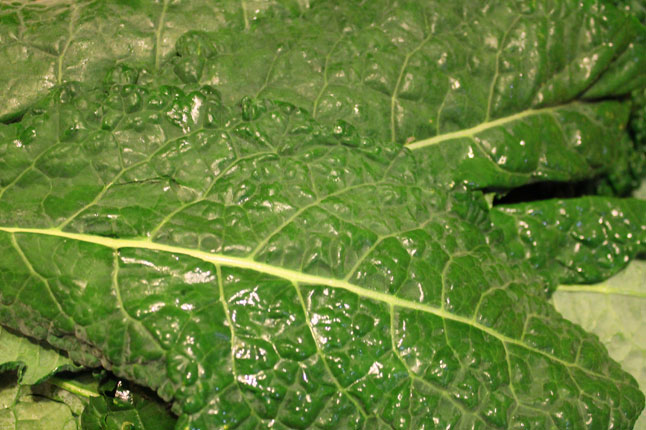Stage

A surprising way to go green with your baby.
Almost every mom understands the nutritious value that green vegetables can have as part of your baby’s diet. Fewer moms however have heard of the little-known benefits of kale (or borecole), a super vegetable that is a leafy form of cabbage. Kale features large amounts of beta carotene, vitamin C, vitamin A, vitamin K and some calcium, which collectively promotes baby’s growth, boosts the immune system, enhances the nervous system, and assists brain, bone, and tissue development. Best of all, kale is a versatile ingredient that can be served with, or in, many of the foods you already give your little one.
A smart way to add nutrition to every meal.
Most pediatricians recommend that your baby be at least nine months old for cooked greens, and 10 months old for finely chopped raw greens. Therefore, kale is best introduced to your baby in pureed form. After buying kale, place it in a plastic bag unwashed in the coldest section of your refrigerator until you are ready to serve it. Typically, kale will keep for about one week. When pureed, kale is virtually tasteless and can be included in almost any baby food dish. You may also steam or boil kale before adding it as a healthy secret ingredient to your child’s diet. Finally, as your toddler grows, kale is a popular nutritious additive to fruit smoothies (and it’s very beneficial for adults too!).
Interesting kale facts.
Kale is a member of the cabbage (Brassica oleracea) family and is often called the Queen of Greens for its nourishing benefits. During World War II, Britain promoted a Dig For Victory campaign that promoted kale as an easy to grow vegetable that could supplement other dietary nutrients missing due to rationing. Believed to have originated in Greece, kale is mainly grown in Middle and Western Europe, North America, and East and West Africa.
Easy, delicious and nutritious kale recipes.
Curious about kale? Try one of our favorite recipes — we have options for all ages!






